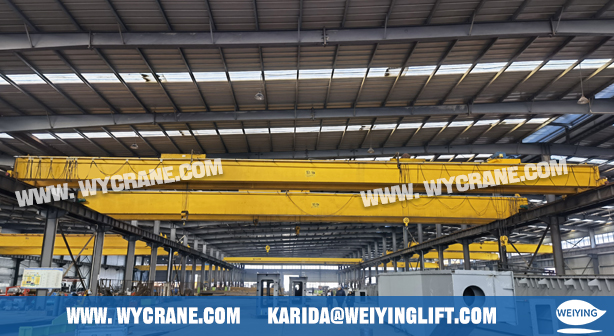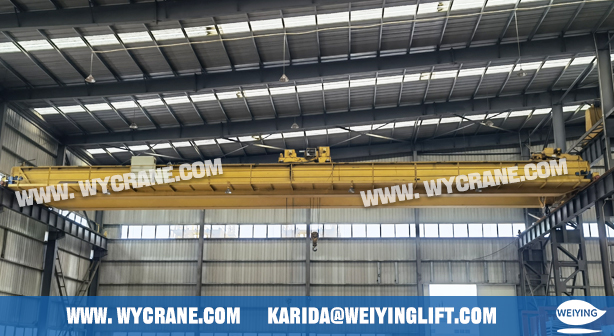Selecting a reliable overhead bridge crane supplier is a strategic investment that directly affects your project safety, operational efficiency, and long-term maintenance costs. The crane industry is highly technical, and suppliers differ significantly in manufacturing standards, engineering capability, certifications, and global service experience. Choosing wisely ensures stable lifting equipment, reduced downtime, and a higher return on investment.
This comprehensive guide helps you evaluate and compare suppliers based on key factors such as reputation, product quality, technical customization, after-sales service, and total ownership cost. It also includes extended content around overhead crane certification, overhead crane licence, overhead bridge crane prices, and more—ensuring your decision-making process is fully informed.
 |
 |
A supplier’s background is the foundation of a successful cooperation. Well-established crane manufacturers typically have:
Long manufacturing history
Decades of production experience reflect mature engineering processes, stable component sourcing, and strict quality control systems.
International project experience
A supplier exporting to Europe, Southeast Asia, the Middle East, and Russia usually understands international lifting standards, shipping documentation, and certification requirements.
Real customer case studies
Case projects in similar working environments (steel mills, warehouses, shipyards, outdoor terminals) demonstrate the supplier’s practical capability.
Positive global customer feedback
Reviews, testimonials, and repeat orders indicate credibility and user satisfaction.
A reputable manufacturer reduces the risks of delayed delivery, quality disputes, and operating failures.
For heavy lifting equipment, compliance is non-negotiable. A trustworthy supplier must provide recognized overhead crane certifications, including:
ISO 9001 Quality Management Certification
Ensures consistent manufacturing quality and standardized production workflow.
CE Certification for Europe
Demonstrates compliance with EU machinery directives.
SGS / TUV Inspection Reports
Increase credibility for global buyers requiring third-party verification.
Welding and structural certifications
Professional welding certifications ensure the structural integrity of main beams and end beams.
Load Testing Reports
Proof that the crane has passed rated load and overload testing.
For regions requiring an overhead crane licence, a qualified supplier should also provide:
Technical drawings
Electrical circuit diagrams
Strength calculation sheets
Installation manuals
Commissioning reports
These documents support local government approval and compliance audits.
A crane’s lifespan and performance primarily depend on the quality of its components. When evaluating a supplier, examine:
Steel structure quality
High-grade steel with precise welding ensures rigidity, reduced deformation, and long-term fatigue resistance.
Hoist and trolley mechanism
Reliable engines, motors, and wire rope systems reduce failure frequency, especially during intensive operation.
Electrical system quality
A professional supplier uses industrial-grade electrical components, high-protection junction boxes, and safe cable routes to minimize short circuits or breakdowns.
Control system
Options such as pendant control, wireless remote, and cabin control should be provided. Advanced suppliers offer VFD control for smoother operation and safety.
Safety protection devices
These may include:
Overload limiter
Anti-sway system
Phase protection
Emergency brake
Buffer devices
Limit switches for lifting and travel
High-quality components reduce maintenance costs and prevent production interruptions.
Every industry and project has unique requirements. A strong crane supplier should provide tailored solutions, such as:
Complex lifting environments
Extreme cold (below –40°C), high humidity, corrosive environments, heavy dust, or strong wind conditions.
Customized structural design
Adjustable spans, lifting heights, hook approaches, or low-clearance design for workshops with limited headroom.
Special working attachments
Grabs, magnets, lifting beams, clamps, and bespoke lifting devices.
Automation and smart features
Semi-automatic or fully automatic crane systems, data monitoring, zone protection, and intelligent anti-sway control.
Integration with production lines
Flowline lifting, warehouse automatic logistics, overhead crane kits, and modular systems.
Suppliers with engineering teams capable of designing customized solutions add significant value compared to standard product manufacturers.
High-quality cranes require ongoing support throughout their life cycle. Evaluate whether the supplier provides:
Professional installation guidance
Including structural drawings, electrical schematics, foundation design, and online/off-site technical instructions.
Commissioning support
Assistance during the crane’s initial testing phase to ensure all mechanisms operate correctly.
Regular maintenance guidance
Seasonal maintenance plans, lubrication schedules, and troubleshooting manuals.
Fast spare parts supply
A reliable supplier stocks motors, brakes, cables, inverters, and hoist components for quick replacements.
Warranty terms
Clear warranty clauses demonstrate confidence in product quality.
A supplier with global service partners or overseas engineers can provide even stronger support.
Smooth communication is essential for international purchases. A professional supplier should demonstrate:
Fast reply speed
Precise technical communication
Clear documentation
Ability to understand your working conditions
Proactive problem-solving attitude
Efficient communication minimizes project delays and ensures seamless cooperation from quotation to delivery.
When comparing overhead bridge crane prices, consider long-term costs rather than initial numbers. Important factors include:
Energy consumption
Maintenance frequency
Spare parts availability
Operating stability
Probability of unexpected downtime
Structural longevity
High-quality cranes reduce accidents, extend service life, and provide higher operational value.
A supplier offering higher-value products usually demonstrates:
Optimized structural design
High standard of safety protection
Efficient motors and VFD systems
Long service life of wire ropes and brakes
Strong and safe hoist mechanisms
Low noise and smooth operation
Extra optional features for improved productivity
These advantages significantly increase long-term profitability.
Beyond major selection criteria, consider the following practical aspects:
Production capacity and lead time
Ensure the supplier can produce large orders or urgent deliveries without compromising quality.
Export packaging and shipping experience
A good supplier uses moisture-proof, impact-resistant packaging, with clear labels for easy installation at your site.
Technical documentation completeness
A full set of drawings, manuals, inspection certificates, and installation videos demonstrates professionalism.
Compliance with local regulations
The supplier must understand your region’s safety standard and be able to support licence application or inspection processes.
Availability of crane kits
For resellers or integrators, a supplier offering crane kits (hoist + end beams + controls) can be highly beneficial.
Choosing the right overhead bridge crane supplier is a crucial step in ensuring safety, operational efficiency, and maximum return on investment. By carefully evaluating supplier reputation, technical strength, product quality, customization capability, after-sales service, and overall value, you can confidently identify a professional manufacturer that meets your project requirements.
A strong supplier not only provides high-performance lifting equipment but also delivers complete engineering support—from design and manufacturing to installation guidance and long-term maintenance—helping you achieve safer, smarter, and more efficient lifting operations.
A professional supplier should provide ISO 9001, CE certification, SGS/TUV inspection reports, welding certificates, and load testing reports. These ensure the crane meets international safety and quality standards.
The price depends on lifting capacity, span, lifting height, working duty, electrical system, and customization level. Total cost of ownership—including maintenance, energy consumption, and spare parts—should also be considered.
You can check manufacturing experience, international project cases, component brands, production workshops, welding quality, quality control processes, and third-party inspection reports.
Yes. Suppliers can customize cranes for extreme cold (–40°C), strong winds, corrosion, dusty workshops, outdoor terminals, hazardous areas, and limited headroom.
You should receive installation drawings, electrical schematics, remote or on-site guidance, maintenance manuals, spare parts supply, and quick communication support.

With 34 years of manufacturing experience and 12 years of export expertise, we have built a dual advantage of professional qualifications and a global presence. Our business covers more than 100 countries and regions across Asia, Europe, the Americas, Africa, and Oceania. We are certified under the ISO management system and hold CE product certifications. Our main product lines include six major series—electric hoists, electric winches, gantry cranes, bridge cranes, marine cranes, and portal cranes—comprising nearly 100 different models.
If you want to learn more, please contact us.
E-mail address: karida@weiyinglift.com
Website: www.wycrane.com